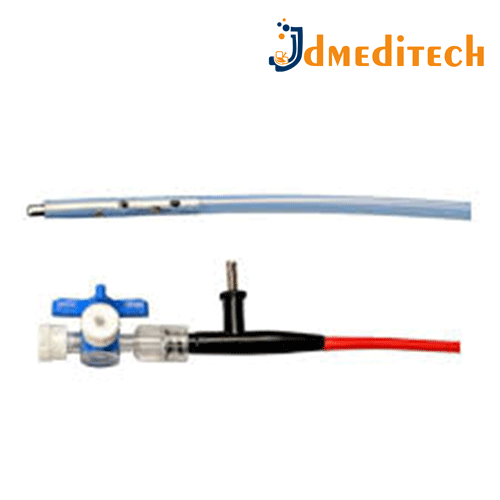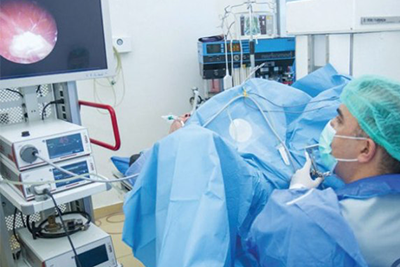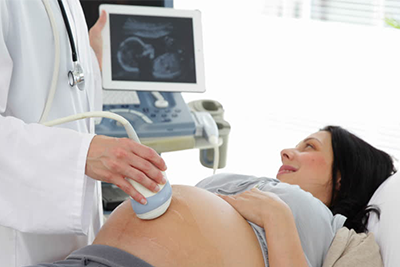
Coagulation Probe

Coagulation Probe
- International Quality Standard.
- Fastest Delivery.
- Export Standard Packaging.
- Customized Production.

Product Description:
A Coagulation Probe is a hemostatic device used in endoscopic procedures to control bleeding by delivering thermal energy to targeted tissues. It is commonly used in gastrointestinal (GI) and urological surgeries.
Key Features:
Thermal Coagulation: Uses electric current (monopolar or bipolar) to cauterize bleeding vessels.
Flexible & Disposable or Reusable: Designed for easy maneuverability through endoscopic channels.
Variety of Tip Sizes: To suit different anatomical and procedural needs.
Controlled Energy Delivery: Reduces risk of damage to surrounding tissues.
Uses:
GI Bleeding Control: Treats bleeding ulcers, varices, or vascular malformations.
Urology Applications: Coagulates tissue during procedures like TURP.
Polypectomy Assistance: Coagulates tissue base post-polyp removal.
Hemostasis During Biopsies: Prevents bleeding after tissue sampling.












